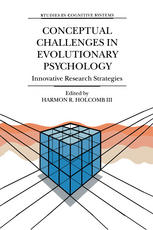

Most ebook files are in PDF format, so you can easily read them using various software such as Foxit Reader or directly on the Google Chrome browser.
Some ebook files are released by publishers in other formats such as .awz, .mobi, .epub, .fb2, etc. You may need to install specific software to read these formats on mobile/PC, such as Calibre.
Please read the tutorial at this link: https://ebookbell.com/faq
We offer FREE conversion to the popular formats you request; however, this may take some time. Therefore, right after payment, please email us, and we will try to provide the service as quickly as possible.
For some exceptional file formats or broken links (if any), please refrain from opening any disputes. Instead, email us first, and we will try to assist within a maximum of 6 hours.
EbookBell Team

0.0
0 reviewsThis series will include monographs and collections of studies devoted to the investigation and exploration of knowledge, information, and data-processing systems of all kinds, no matter whether human, (other) animal, or machine. Its scope is intended to span the full range of interests from classical problems in the philosophy of mind and philosophical psychology through issues in cognitive psychology and sociobiology (concerning the mental capabilities of other species) to ideas related to artificial intelligence and to computer science. While primary emphasis will be placed upon theoretical, conceptual, and epistemological aspects of these problems and domains, empirical, experimental, and methodological studies will also appear from time to time. Few areas of inquiry have generated as much interest and enthusiasm in recent times as has the discipline known as "evolutionary psychology", but its pretentions and its accomlishments have not always been properly understood. This collection brings together important work in psychology, anthropology, and the philosophy of science that contributes toward that goal, especially by emphasizing the role of natural selection and sexual selection as crucial factors in the evolution of cognitive mechanisms for information processing. The methodological studies that are presented here are bound to enhance appreciation for the scope and limits of this fascinating domain. The editor has produced a fascinating volume that should appeal to a broad and diverse audience.